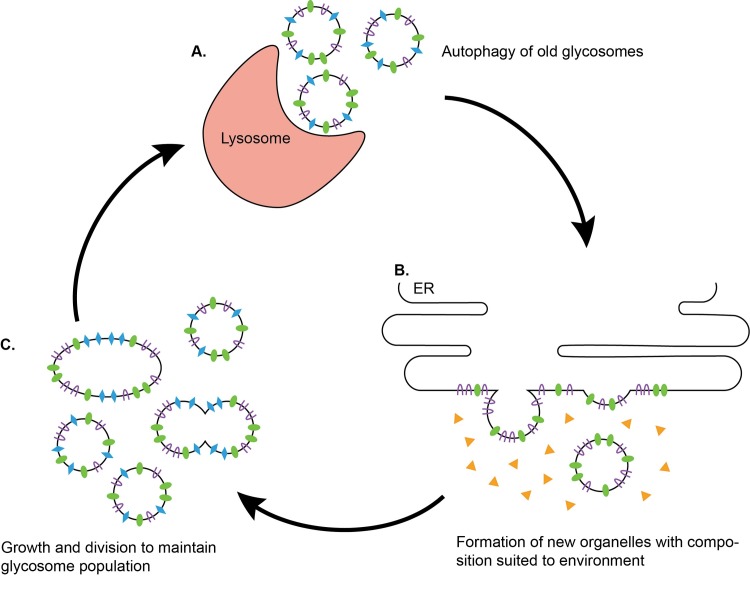Fig 1. De novo biogenesis may facilitate production of new glycosomes after autophagy of old organelles.
(A) Autophagy enables turnover of existing glycosomes [67]. Glucose availability changes through the life cycle of T. brucei, ranging from undetectable levels to ~5 mM [9]. In response to fluctuations in glucose availability, “old” glycosomes with compositions best suited for prior environmental conditions can be degraded via autophagy. This may explain why glucose-dependent changes in glycosome composition occur in a time frame consistent with autophagy [68]. (B) “New” organelles with protein repertoires better suited to the new levels of glucose in the environment can be generated from the ER [48,49,59,60,68–70]. (C) Once new glycosomes are generated, they can be maintained through fission [26]. This process enables cells to remodel glycosome composition and adapt to changing glucose levels.

